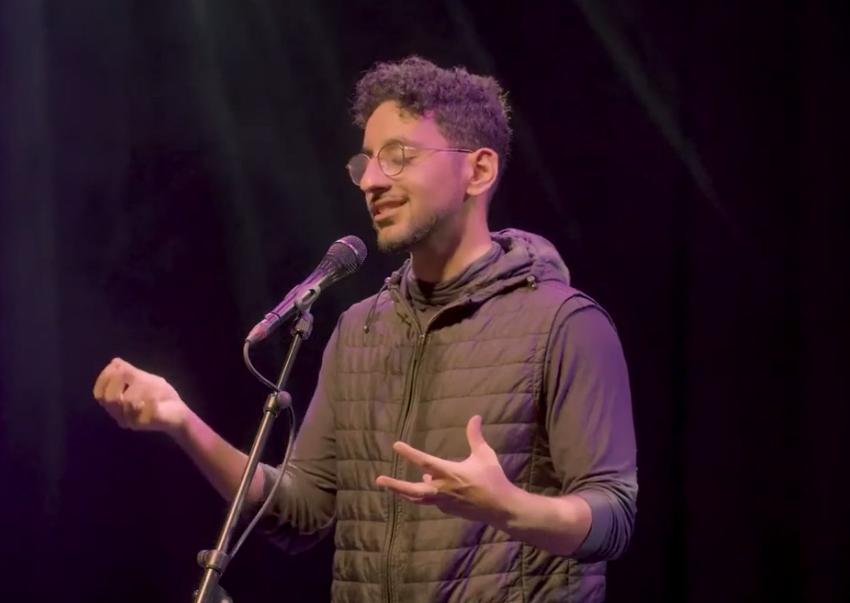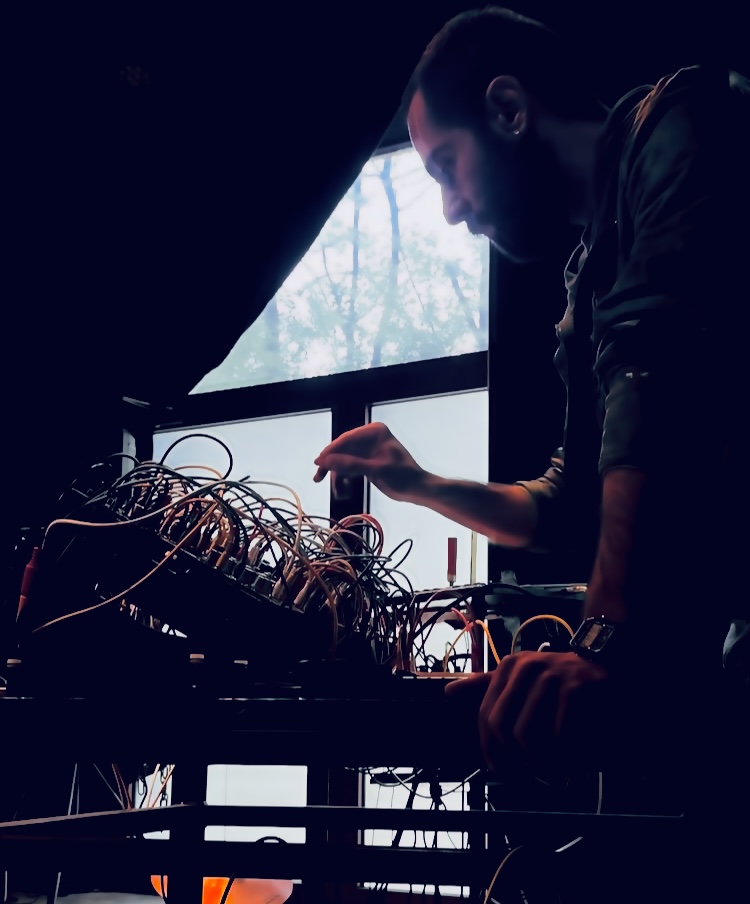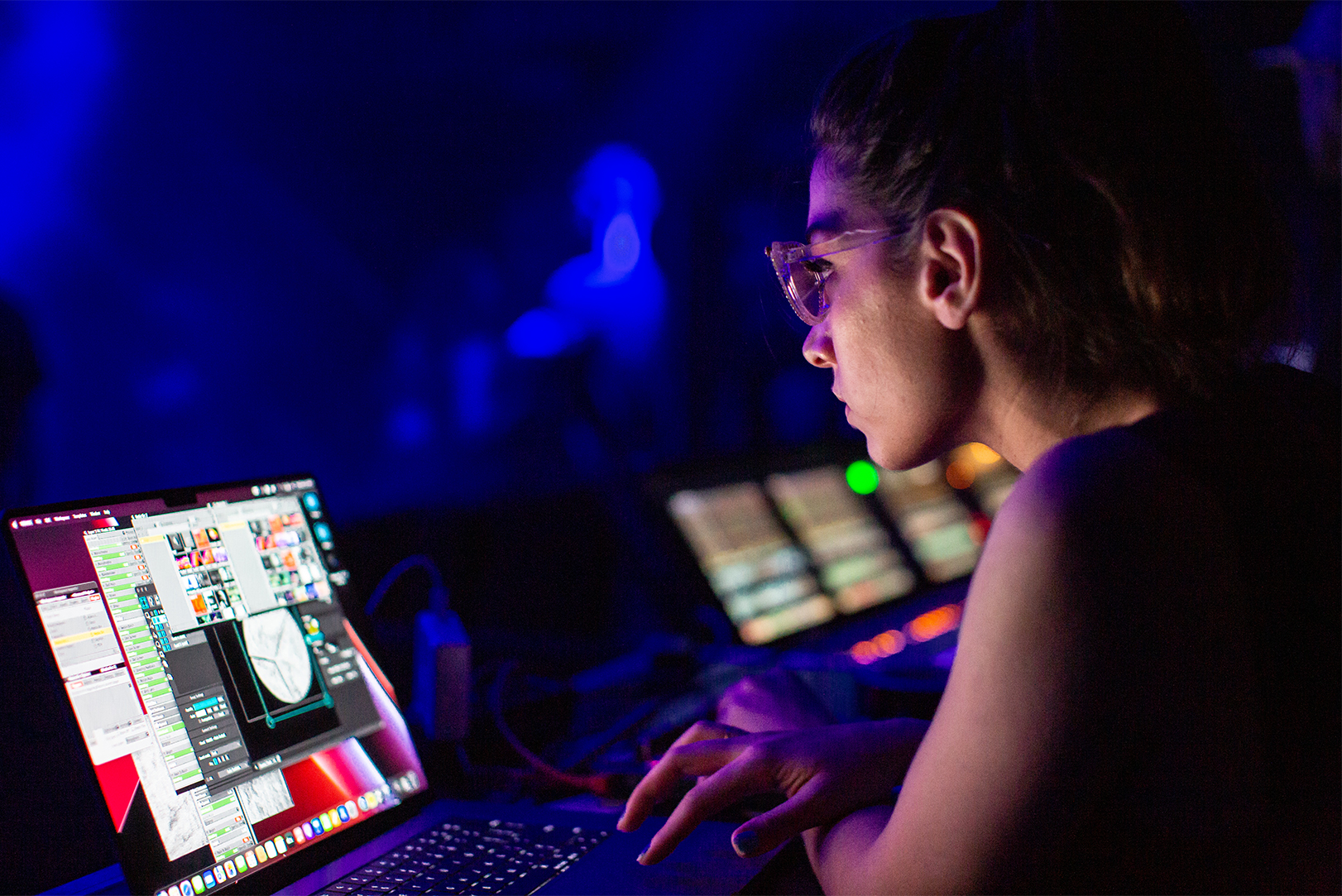17:30 – 18:50 | Welcome Bites & Community Dinner
دو دریا dou darya, translating to two rivers from the Urdu language, was started by two sisters from Pakistan who were obsessed with recreating their moms dishes from home, and found a passion in sharing the results with their family here. dou darya hopes to show the world a different flavor of subcontinental food and share the diverse flavors Pakistan has to offer.
19:00 – 19:10 | Opening - Why This Week Matters
This short opening reminds us that showing up with hope is a political act. It’s the spark that keeps movements alive. Join us as we kick off the week by rooting ourselves in purpose, resistance, and collective vision.
19:10 – 19:25 | Umayya Abu Hanna - The Daisies and the Pop-Singer: Designing Resistance to Refugeehood in Yaffa and Haifa
Umayya will take us through two powerful narratives of Palestinian defiance against dispossession: The Daisies, a fourteen-member women’s underground cell operating in Yaffa, and a trailblazing singer-songwriter whose records—released across the Arab world in the 1930s—became an anthem of freedom. Through their stories of conscious resistance, we explore how art and organized solidarity challenged forced exile in Palestine.
19:30 – 20:00 | Keynote: Jerry Afriyie - On poetry and protest, reclaiming Dutch identity from grassroots
What does it mean to resist with our stories, our languages, our everyday lives? In this keynote, Jerry King Luther Afriyie reflects on resistance in its many forms: memory, silence, and storytelling as subversion; poetry and protest as a reclaiming of identity, and the quiet power of performing belonging in everyday life.
20:00 – 20:10 | Voices from the RWW Coalition
In this short session, three refugee-led and grassroots groups share what it means to resist through culture, and why Refugee Welcome Week must become louder, bolder, and bigger.
Screening & Discussion: Introspective: Modes of Artistic Expression and Cultural Engagement
We’ll continue with a short screening that documents statements written across Libya after Gaddafi’s fall. From there, the conversation opens: art as collective practice, representation, funding, and resistance to cultural monopolies. Facilitated by an artist, producer, and researcher, this session invites you to reflect, share, and reimagine how we create and sustain radical cultural work.
20:15 – 21:15 | Written to not remain by Tewa Barnosa 2024 (00:12:30 min)
Written To Not Remain is a video iteration of an ongoing visual investigation looking into the acts of writing on the walls across post-revolution Libya. positioning collective statements as ephemeral evidence of contemporary and historical dialogue, social commentary, war correspondences, or often silent protests.
In this video work combining archival footage and digital acts made in a virtual reality simulation, Barnosa translates and transmits a photo archive she began collecting in 2019. Serving as testimonies on the western-led manufactured wars in Libya following the Arab Spring in 2011. Elaborating on a selection from over 200 images of writings alongside a text recitation as source materials for reflection and remembrance.
Live Performances
Culture survives because we carry it; in our voices, our bodies, our stories. This closing performance brings together live music, poetry, and sound installation.The space will become more than a stage; it will represent protest art and diaspora archives.
21:20 - 21:50 Resistance in Rhythm
Syrian singer Shaza Hayek and percussionist Modar Salama join forces in a serenading performance blending voice and rhythm. Shaza, a celebrated soloist with the Syrian Opera, is known for her emotive fusion of Arabic styles. Modar, a seasoned percussionist and Syrian National Orchestra alum, brings rich, cross-cultural rhythms shaped by global collaborations.
21:50 - 22:00 Poetry by Abdo
Drawing from cultural heritage and everyday experience, he writes to explore how systems—urban, technological, or familial—shape how we remember and relate.
22:00 - 22:40 of Resonance of a River of Rhythms
A live electronic music performance by Mazen Al Ashkar with live visuals by Hadil Sakikar.












